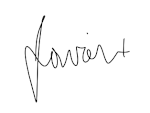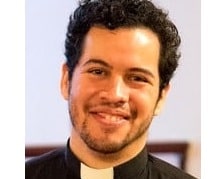“There’s this theory that self-esteem has to do with getting confirmation from the outside world that our perceptions are fundamentally accurate. What Doug does at this meeting is increase my self-esteem by confirming that my perception of the work I’d been doing is fundamentally accurate. The work I’ve been doing is bad. Or, worse: it’s blah. This is uplifting–liberating, even—to have my unspoken opinion of my work confirmed. I don’t have to pretend bad is good. This frees me to leave it behind and move on and try to do something better. The main thing I feel: respected. Doug conveys a sense that I am a good-enough writer and person to take this not-great news in stride and move on.”
George Saunders, My Writing Education: A Timeline
George Saunders knows how to write a good short story. The excerpt above doesn’t come from his fiction writing, though—it’s a reflection on what it means to become a good writer in the first place.
Writing takes practice, and practice, by necessity, involves a fair share of failure. The mark of a good writer is not faultless talent but the ability to tell the truth about herself and her work—whether it happens to be good, bad, ugly, or all of the above. Sentences rarely come out in pristine form; painstakingly-written paragraphs might have to go; the story itself may take you in a completely different direction than you originally planned. These detours, however, are not distractions from the point. They are part and parcel of the journey.
The world we live in right now is made up of crises that keep coming at us with agonizing pain and urgency. I keep talking to people who recognize that they have much to learn about race and racism; people who would like to take on the issues of the day once they have gotten through their reading list and achieved a state of perfect awareness. Following the impulse to learn and educate oneself is an important, necessary, and noble first step—but it should by no means be a paralyzing one.
Too often, we want to arrive at the perfect response without risking failure; we want to present ourselves to the world as finished projects rather than works in progress. In these moments, it is important to remember that the myth of perfection is as much a tool of white supremacy as the more insidious and visible means of preventing social change. Recognizing ugly truths about ourselves and the world is indeed painful. More importantly, though, that truth is liberating.
What if you were freed from the lies that you have believed about yourself and the world that we live in? What if you were freed from the need to have all the right answers; freed from the pressure of proving your worth as you engage with material that may expose your ignorance and complicity? Imagine, for just a moment, a world where this process is not a one-time event but a way of life. What possibilities might be available to you then?
Don’t wait to be a finished project. Take the not-great news in stride—and pursue the way of love that takes risks, the way of justice that takes bold action, the way of hope that imagines life abundant on the other side.
— Fr. Javier


